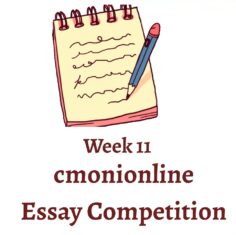In an exclusive interview, the great Chinua Achebe once said, “Providence has been so prodigious in its gifts to a country like Nigeria. So, when you look at that possibility and what was achieved, one feels very bitter indeed.”1 For years, it seems we have been on an indefinite repeat like some poor urchin lost in the woods that is determined to find his way home, but is very unfortunate not to have a compass. He just keeps on going round and round clusters of boscages without knowing he would never find his way home. It is indeed very unfortunate.
Right from infancy, we begin to look up to our forbears. A child learns to say the words he has heard his parents say. Being a toddler, he would begin to try to walk as he had seen the people around him do. Our process of growth in whatever sphere of life doesn’t seem to be any different. More often than not, we need observe how pre-existing entities had morphed into having the grand existences they have which we so dearly crave. As a nation, what mirror have we been staring into to become better versions of ourselves even as we age?
Taking a cue from the processes of human evolution and even in other lesser animals, we find that at sixty, any existing entity has had a fair share of experiences that must have come to effect several changes in its course of existence. Without doubt, Nigeria has indeed aged, and it is expected that with age comes a sense of responsibility. The gifts of Providence make it rarely possible to believe that at such an age, the nation would be unable to take up the responsibility of providing a safe haven for its inhabitants. A nation ordained to be a home of immigrants, yet groping in the dark, seeking help. It is upon this sad reality that the father of modern-day African literature made the aforementioned statement.
In truth, Nigeria, on her own, cannot utilize any of her numerous possible potentials. It is men who bring the desired results by pulling the reins of governance effectively. All through the history of the nation, the emergence of new governance has always induced a certain height of confidence and hope in the hearts of all that are to be governed no matter how badly quashed those hopes had been in the time of the outgoing government. However, promises when delayed eventually dampen faith. Slowly and steadily, our nation has precipitated to a sorry state of chronic indifference. We would invest our time to anything – religion, entertainment, sports – anything, but governance. That is the consequence of our sad reality.
Based on close observation of available data, we find that there have been glaring evidences of massive disinterest in electoral processes from 2003-2019. After the elections of 1998 were annulled, the 2003 elections, despite several accounts of seeming criminal elements,2 opened Nigerians to yet another opportunity of exercising civil rights. Collated results of the 2003 Presidential elections which stood at a whooping total of 42 million votes3 remain the highest recorded turnout in Nigeria’s electoral history.
Elections after that were in 2007, and available data indicates a decline in political interest amongst members of the public as the total collated results stood at scarcely more than 35 million votes4, that is 7 million votes poorer than the results of the previous electoral year. In 2011, the public interest in politics seemed to get pitched a bit as there was a total of 39 million votes. However, 2015 and 2019 presidential elections had their total votes at 28 million votes each5.
These sets of data are important as they show us the trend of our political disinterest. I propose that this continuous occurrences of apathy through the years border on unfulfilled, abandoned promises, all too overt embezzlement of funds, and an audacious abuse of power by persons who have held the reins of power in recent times. Even more embittering is the woeful reality that the decline in political interest amongst the populace which would have troubled any normal nation has come to be a norm for us, and with this unhealthy decline comes the usurping of power by some foreignness. It would suffice it to say that the vices perpetuated daily need be blamed on an unfamiliarity, something external, something from outside us even though we know that we are our own problems.
Persons who would have been better handlers of the reins of power have become the very persons who dissuade everyone else from getting involved in electoral processes. Hence, Nigeria has remained in the middle of this confusion in finding her path home. Indifference, taken lightly more often than not, has brought and kept us here. I propound that apathy has cost us whatever dividends of quality leadership we have ever imagined. There could probably never be an end to the list of our national challenges, however, how efficiently and swift we are in ridding this growing apathy and ensuring a reawakening to our political obligations – a reawakening that will be completely insensitive to class, age, gender, faith, or ethnicity – the closer we would come to the change we truly crave.
References
- https://www.instagram.com/p/CHrpYMblghY/?igshid=1gm9qdp4jmew5
- Casmir, Ani, et al. Electoral Fraud in Nigeria: A Philosophical Evaluation of the Framework of Electoral Violence. Open Journal of Political Science, 2013, pp. 167-174.
- Wikipedia
- Wikipedia
- Wikipedia
Johnson Onyedikachi is an eighteen-year-old Nigerian creative writer who has unpublished manuscripts of poetry and plays. He recently picked interest in crime fiction and in August 2019, enrolled in an online course where he gained proficiency in article/journal writing including the use of referencing formats (MLA and APA style). He is hopeful that he will be successful in writing.







